2015.08.25
Obon is time for family gathering to remember ancestors
The three-day annual observance of Obon started Wednesday, and with the exception of Eisa, a form of ‘Bon Odori,’ the event is mostly held inside homes and in front of home altars.
Obon used to be a major holiday in Okinawa but these days, all retail shops, restaurants and public offices stay open as normally scheduled, although many small private companies and shops still close, especially in the countryside.
Eisa is performed to honor and entertain the spirits of the ancestors, and is traditionally the job of young men in the community to participate.
Obon is a time for celebrating the life of one’s ancestors, and welcoming their spirits home for a family reunion. It’s based on Buddhist beliefs as ancestor spirits are believed to return to the human world at this time for three days to visit relatives.
In Okinawa, Obon is observed according to the lunar or Chinese calendar and always takes place from Jul. 13th through 15th, which is Aug. 26th ~ 28th of the western calendar this year.
According to the beliefs, the gates of the afterworld open on the 13th day of the 7th month of the lunar calendar, and the deceased are allowed to leave to visit the living, and three days later they must return.
Although many people in Japan are not particularly religious, Buddhist services are held at temples and in private homes for ancestors, friends and relatives who’ve died, with particular focus on those who’ve passed away within the past year.
Food for Obon is specific, and it has to be on table throughout all three days.
Wednesday was the first day of Obon, Unkeh, a time for families to gather at the primary family residence to purify the home and its altar. Family members will place fruit, water, sake, tea and a pair of sugar cane stalks on the altar in preparation for the visiting spirits.
In the evening, the family lights candles both at the altar and the gateway to the house to invite the spirits inside. Obon is a time of celebration, and Okinawa’s unique dance, Eisa, is performed in many places to the tune of sanshin music and drums.
It’s also one of the major travel days in the prefecture, as children and grandchildren return from elsewhere in Japan to Okinawa to pay homage to the ancestors. Last year airlines reported over 520,000 reservations for the week of Obon.
Obon is also a time of gift giving, a time to present Ochugen gifts to relatives and bosses and colleagues in the workplace. It’s a major sales season for local retail stores that rack up hundreds of millions of yen in sales, with typical Ochugen gift set costing ¥2,000~¥5,000. Food seasonings, towels, beer and gift certificates are popular choices.
Obon is an important event socially, as well as from a religious perspective. It is a time when it is nearly mandatory that family members return home to be together.
Friday, the final day of Obon, is called Uukui. It’s the time when the family gathers and celebrates with a big dinner before sending the ancestral spirits back to the afterworld. Special paper money, uchikabi, is offered to the spirits for use in the afterworld. About midnight, family members will remove the offerings from the altar and move them to the gate in front of the home. Incense will be lit, the uchikabi burned, and the families say goodbye to the ancestral spirits for another year.





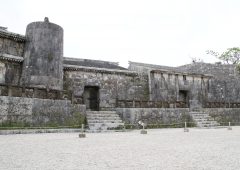 2024.07.07
2024.07.07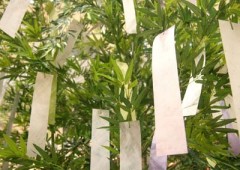 2024.07.02
2024.07.02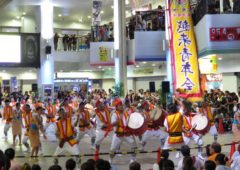 2024.06.11
2024.06.11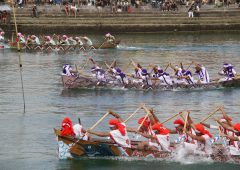 2024.06.03
2024.06.03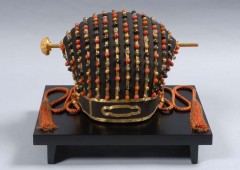 2024.05.02
2024.05.02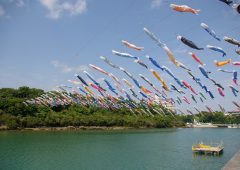 2024.04.26
2024.04.26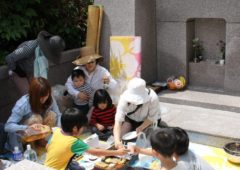 2024.04.04
2024.04.04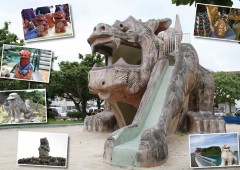 2024.04.02
2024.04.02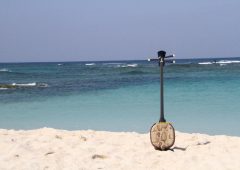 2024.03.03
2024.03.03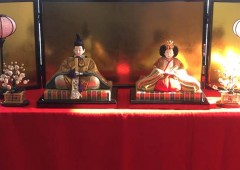 2024.02.26
2024.02.26






